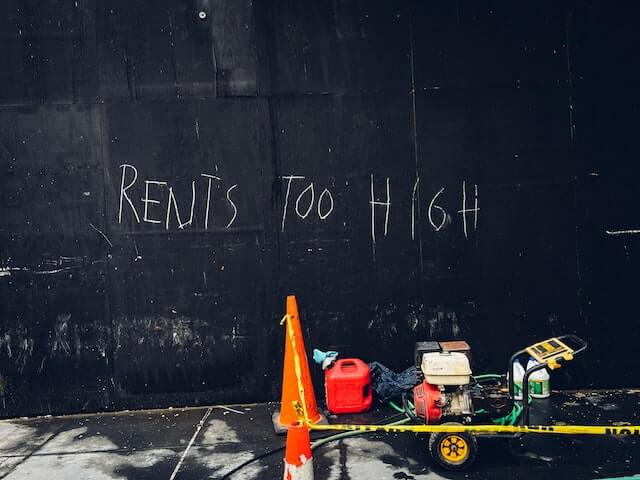Over the past few years, several cities in the United States, including Atlanta and Cincinnati, have passed Renter’s Choice Legislation. This legislation requires landlords to offer tenants the option of purchasing security deposit insurance instead of a traditional security deposit. The legislation aims to expand housing options for renters by reducing upfront costs and increasing financial flexibility.
Why Cities Are Passing Renter’s Choice Legislation
Cities are passing Renter’s Choice Legislation to address the growing affordability crisis in the rental housing market. According to a report by the National Low Income Housing Coalition, in no state can a minimum wage worker afford a two-bedroom rental unit at fair market rent. In addition, the cost of living is rising faster than wages. This makes it difficult for renters to save enough money for a security deposit.

Renter’s Choice Legislation aims to make renting more affordable and accessible. It does so by allowing tenants to purchase security deposit insurance instead of putting down a traditional security deposit. This helps renters who struggle to save enough money for a traditional security deposit.
Security Deposit Insurance: How it Works
Security deposit insurance is an alternative to traditional security deposits. Instead of paying a lump sum upfront, tenants pay a non-refundable fee to purchase an insurance policy. The insurance covers the cost of any damages or unpaid rent at the end of the lease. If the landlord makes a claim against the insurance policy, the insurance company pays out the claim. The tenant is then responsible for reimbursing the insurance company.
Security deposit insurance is typically more affordable than traditional security deposits. Tenants can pay a one-time fee of around 10% of the security deposit amount. This is much less than the typical one-month or two-months’ rent security deposit.
Where Else Has Renter’s Choice Legislation Been Adopted?
Renter’s Choice Legislation has been adopted in several cities across the United States, including Cincinnati, Atlanta, and Portland. Some states, such as Illinois and Connecticut, have also passed statewide legislation requiring landlords to offer security deposit insurance as an alternative to traditional security deposits.

Expanding Housing Options for Renters
Security deposit insurance has the potential to expand housing options for renters by reducing the upfront costs associated with renting. Renters who cannot afford a traditional security deposit may be able to afford the non-refundable fee for security deposit insurance. That makes renting more accessible and affordable.
Additionally, security deposit insurance may help renters build credit. Many insurance companies report payment histories to credit bureaus, which can help renters establish credit and improve their credit scores.
What Renter’s Choice Legislation Mean For Landlords
Renter’s Choice Legislation may have both positive and negative impacts on landlords. On the one hand, offering security deposit insurance may make a property more attractive to renters who cannot afford a traditional security deposit. This could increase the number of potential tenants and reduce vacancy rates.
On the other hand, security deposit insurance may be more difficult to collect on than traditional security deposits. Insurance companies may require more documentation or may dispute claims. This leaves landlords responsible for covering the costs of damages or unpaid rent.
How it Impacts Landlords from other cities
Even if landlords in other cities do not have Renter’s Choice Legislation currently in place, it is still important for them to be familiar with the law for a number of reasons.
Firstly, Renter’s Choice Legislation is becoming increasingly popular across the United States, so it is likely that more cities will adopt similar laws in the future. By staying informed about Renter’s Choice Legislation, landlords can prepare for potential changes to rental housing regulations and adapt their policies accordingly.
Secondly, even in cities without Renter’s Choice Legislation, some tenants may still be interested in purchasing security deposit insurance as an alternative to traditional security deposits. By offering this option on your Padleads listing, landlords can make their properties more attractive to a wider range of tenants and increase occupancy rates.
Finally, understanding Renter’s Choice Legislation can help landlords stay competitive in a rapidly changing rental housing market. As housing affordability continues to be a pressing issue, landlords who are able to offer more flexible and affordable rental options may have a competitive advantage in attracting and retaining tenants.

In conclusion, Renter’s Choice Legislation is an important step towards making housing more affordable and accessible for renters. By offering the option of security deposit insurance, landlords can help renters overcome the financial barriers that often prevent them from accessing quality housing. While this legislation may have some impact on landlords, it is ultimately a positive development for the rental housing market. As we continue to face an affordability crisis, it is important for policymakers, landlords, and rental agents to work together to find creative solutions that benefit everyone involved. By doing so, we can create a more equitable and sustainable housing system for all.